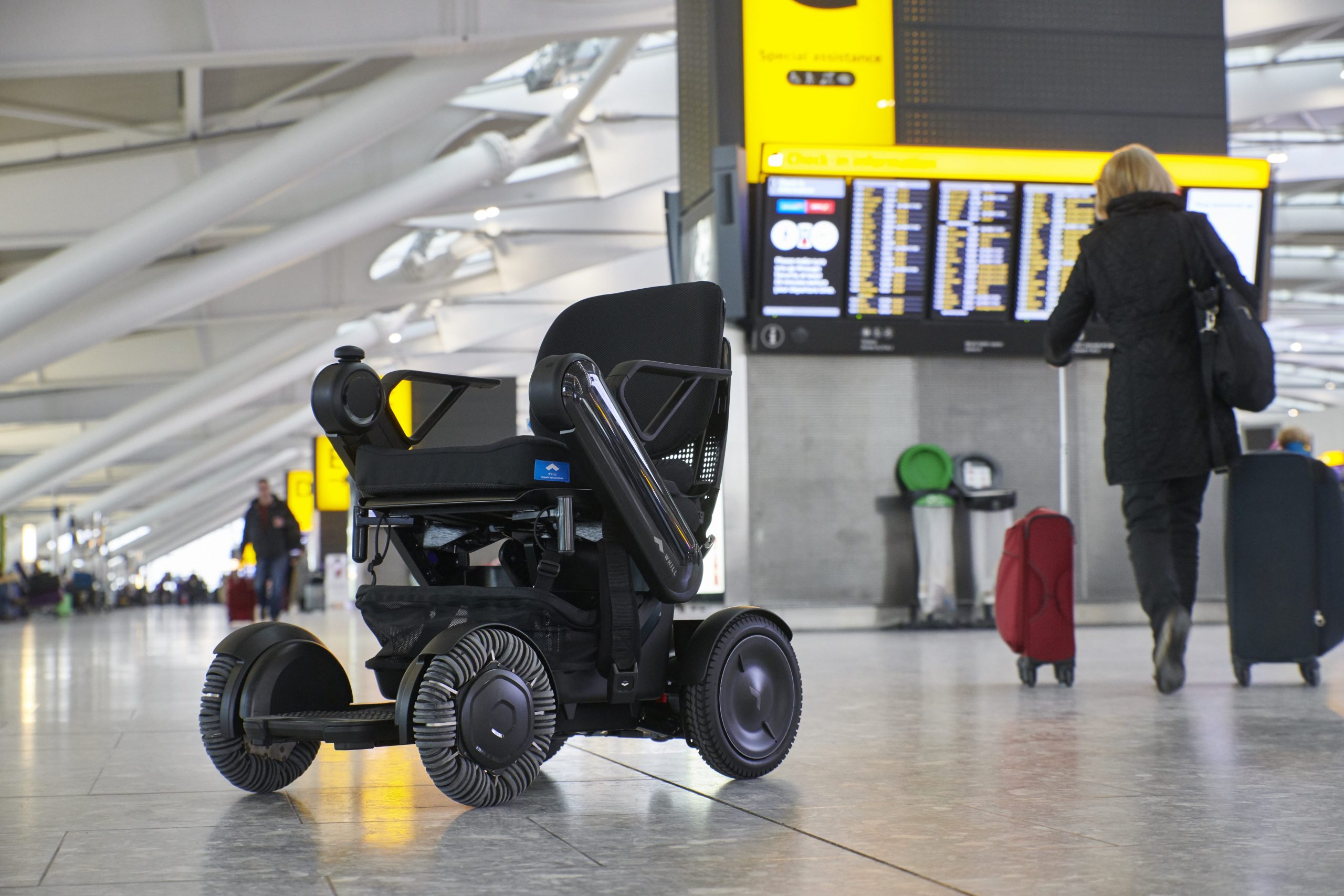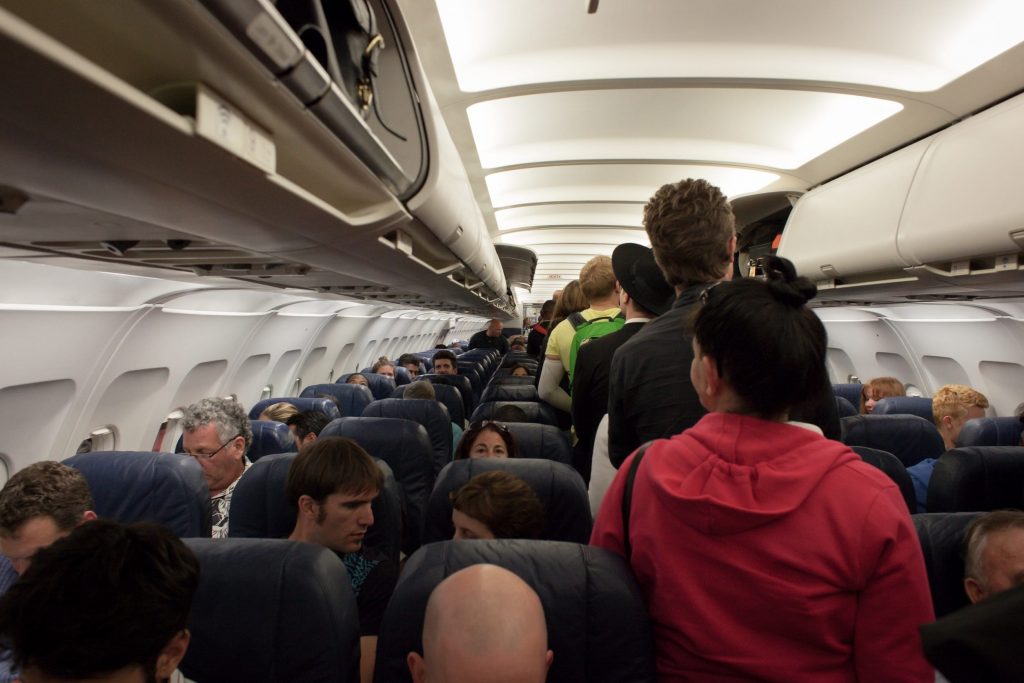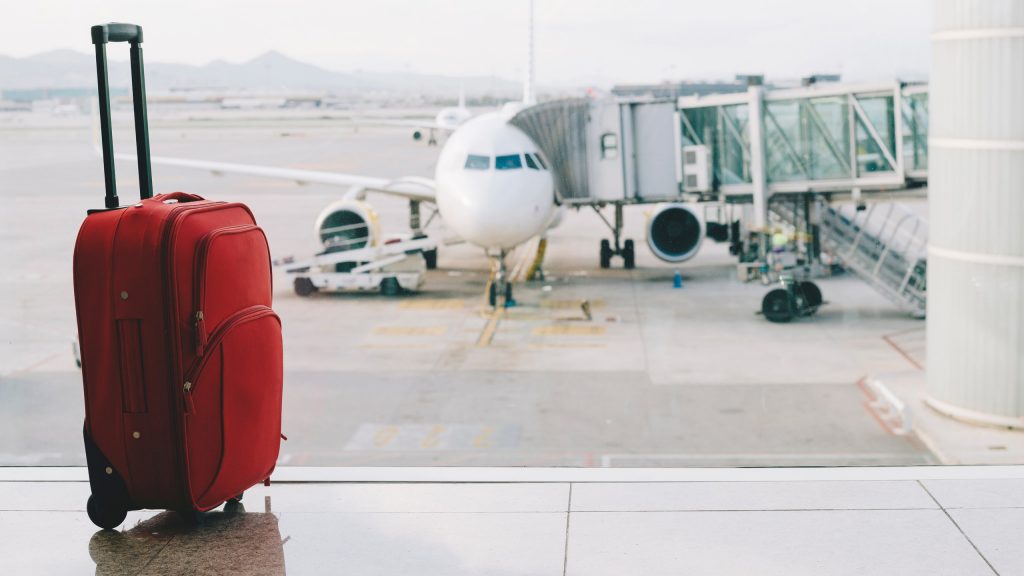
OmniServ: customer care in action
Treat customers as humans and operational challenges will reduce
When BBC correspondent Frank Gardner recently publicised his 100-minute wait for his wheelchair to arrive from the hold to the gate at Heathrow Airport he illustrated a fact not often discussed in the mainstream media: travel – of any kind – when your mobility is restricted can be a massive challenge.
I was glad, therefore, to meet with Samantha Berry who is a passionate advocate of better customer experience in general and accessibility solutions in particular. In her day job as the Heathrow-based Head of Innovation and Regulatory Compliance at airport services company OmniServ, she is responsible for ensuring that people like Frank Gardner get the assistance they need to get through an airport which, she describes as potentially disabling given its sheer size and scale.
OmniServ provides a number of services to airports throughout the UK, including PRM (Persons with Restricted Mobility) assistance which, in essence, means ensuring that anyone who needs additional support to get from one part of the airport to another gets the assistance they need. Airports have a legal obligation to provide this service – some do it in-house and others outsource to OmniServ or one of the other three main providers in the UK marketplace. It’s a pressurised environment: airlines run on a tight schedule and turnaround time is critical so any hold-up in a departure, arrival or flight transfer for a passenger who is slow to board, disembark or connect can have negative consequences for on-time performance.
But behind the sterile acronym and the tight schedules lies a great experience for the customer, according to Samantha, OmniServ’s staff will potentially be spending more 1:1 time with the customer than the airline staff do. Getting the right kind of person in the job is critical and the old adage “recruit for attitude, train for skill” very much applies. Samantha sees the job as a vocation:
“I don’t use the term lightly – we have people whose purpose is to make their passengers journey as smooth as possible. We provide training – accredited by Disability Rights UK – which has moved away from talking about the process to focusing on caring as you assist the passenger, so behaviours are important. A large element of training covers the importance of listening to the customer. For example, sometimes it’s obvious that a customer will need a wheelchair, but only the customer is able to explain how they want to be lifted into the seat.
There’s much about the job that motivates people – “The airport is an exciting environment to be in and no day is the same. Everyone’s very operationally focused and they are driven by delivering a good on-time performance. No-one likes to be faced with a delay, but they like the challenge of a time constraint. Also, your job has a lot of time when you’re talking to the customer and building a relationship.”
End-to-end
As I found out in my recent experience with picking up my in-laws from a rail station, getting the various elements of the journey to link up is a constant challenge (in my case the seamless planning fell apart when the train arrived at a different platform from the one the mobility assistance service was expecting, leaving two people stranded for 20 minutes). Although serious complaints are rare, the loading and unloading of mobility equipment is outside of OmniServ’s control. Sam recalled an incident where she watched helplessly as an electric chair for a customer with motor neurone disease fell to the ramp. Such incidents, again, thankfully rare, can severely affect a passenger’s quality of life – in this case the passenger was bed-ridden for two weeks while the electric chair was repaired.
Balancing airlines’ demands for efficiency versus the cost of assisting less mobile customers is something Samantha sets about with a passion. She recalled a discussion with the head of planning for one airline where she pointed out that flights from some destinations – Malaga for example – would have a much higher proportion of PRM passengers than other more business-focused destinations such as Frankfurt and therefore scheduling should allow for the additional turnaround time required. Eventually the planner changed the schedule to reduce the pressure.
She spends a lot of time talking to the various groups across Heathrow and works with the OmniServ Disability Advocate who provides additional insight into customer needs and how issues can be resolved.
Although the tension between cost and service provision will never go away, Samantha made the point that if you get it right for the customer the challenge will solve itself as more people will choose to use an airport/airline who get accessibility right.
With the number of passengers requiring assistance is growing at a rate of 7% as opposed to 5% for those who don’t, it’s a demand that’s only going to increase.
Innovation
OmniServ is constantly seeking opportunities to improve the experience through new technology. In celebration of International Wheelchair in March they showcased the WHILL, a high-tech solution which has been dubbed “the world’s most futuristic-looking wheelchair“. Designed by a start-up company created by a team of engineers from Japanese companies Sony, Toyota, Olympus and Panasonic and when used in conjunction with beacon technology, mobile devices and other systems, these can be controlled using smartphones, can travel in convoy through an airport and, eventually, will be able to be programmed to move themselves to where they are needed, without passengers or attendants.
Reaction from representatives of disability charities and wheelchair users was positive and the device also attracted attention from able-bodied millennials who saw it as a cool way to move through the airport.
Such facilities will give customers increasing independence and have the potential to drive efficiencies, but the human touch is still very important. Samantha’s aim is to have people whose level of intuition is so great that they will be able to understand customers’ needs and simply ask “how can I make your journey better?”
The airline industry is a high-volume business, with considerable competition for the lower end of the market where margins are tight. In such a world it’s theoretically easier if passengers can all be treated as uniform entities conforming to a standard set of behaviours. In Samantha Berry’s world such a “one size fits all” approach is highly inappropriate and, in the long-term, counterproductive. She recognises that the foundation of a great customer experience is to treat customers like the unique human beings that they are and to provide a service accordingly.





